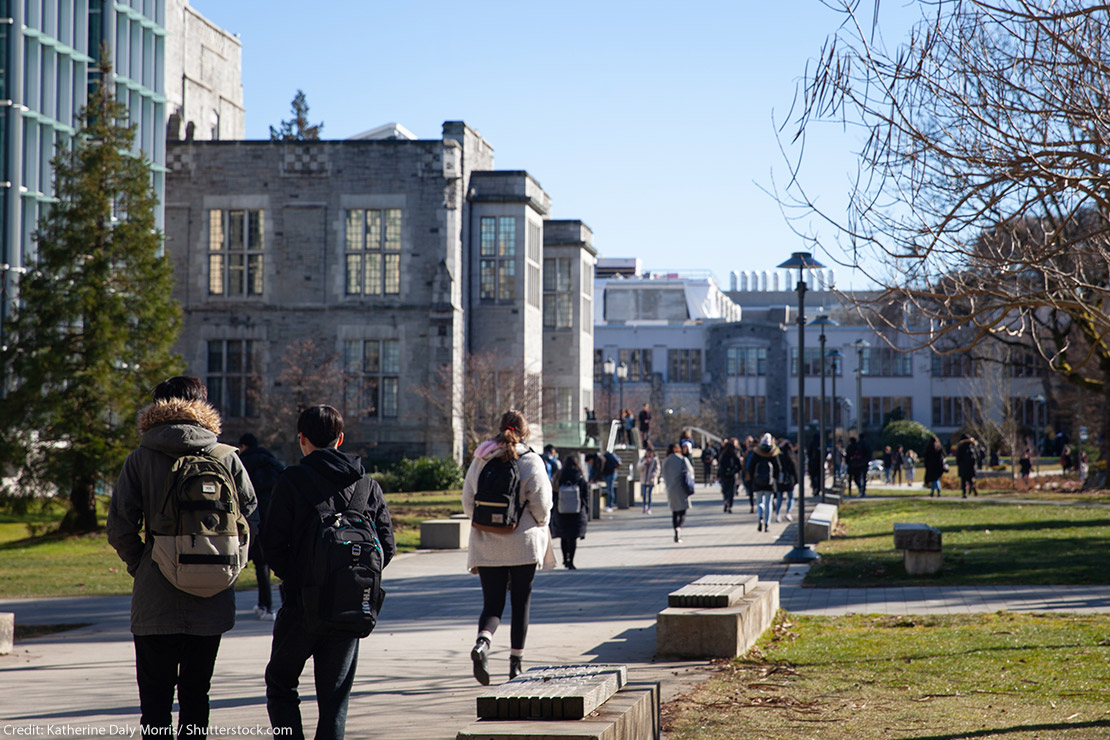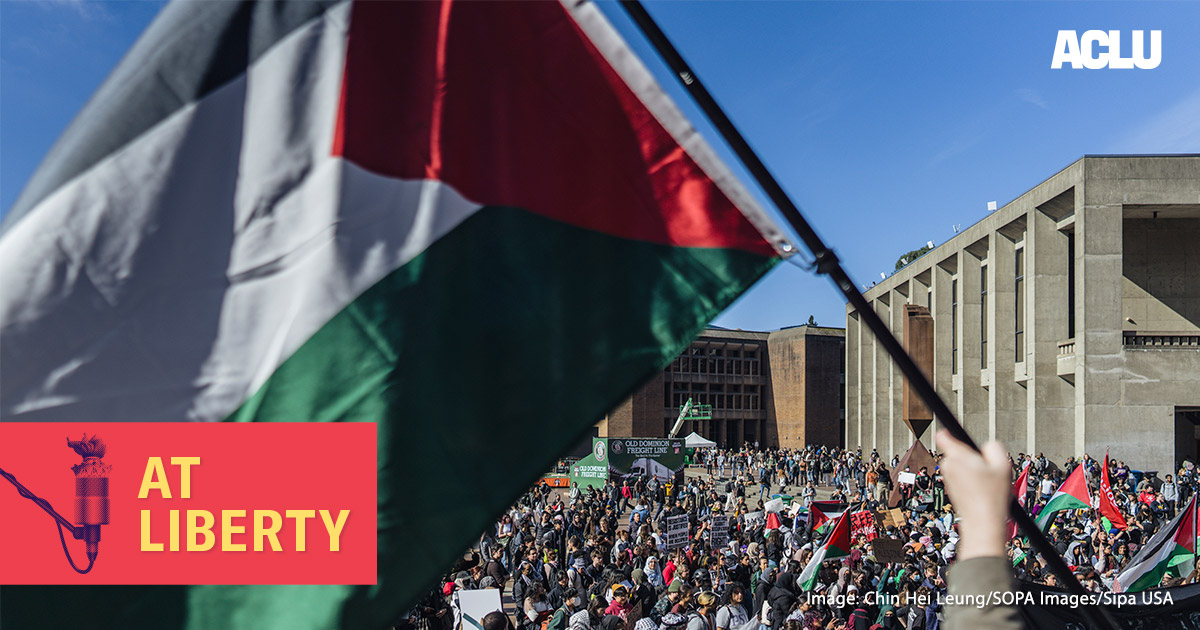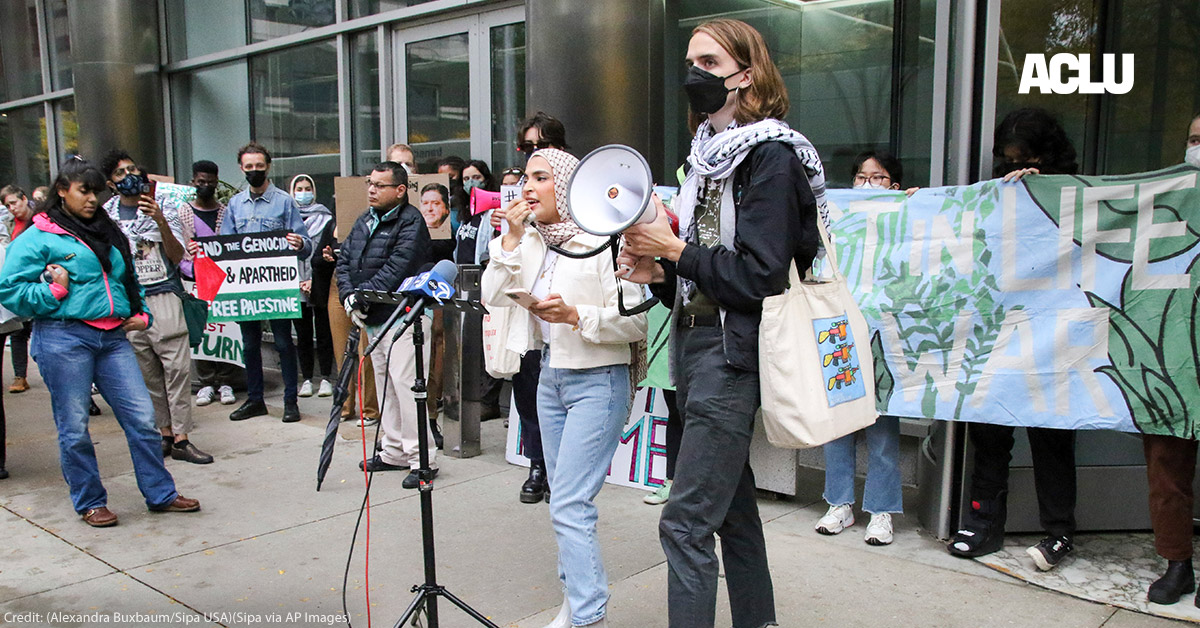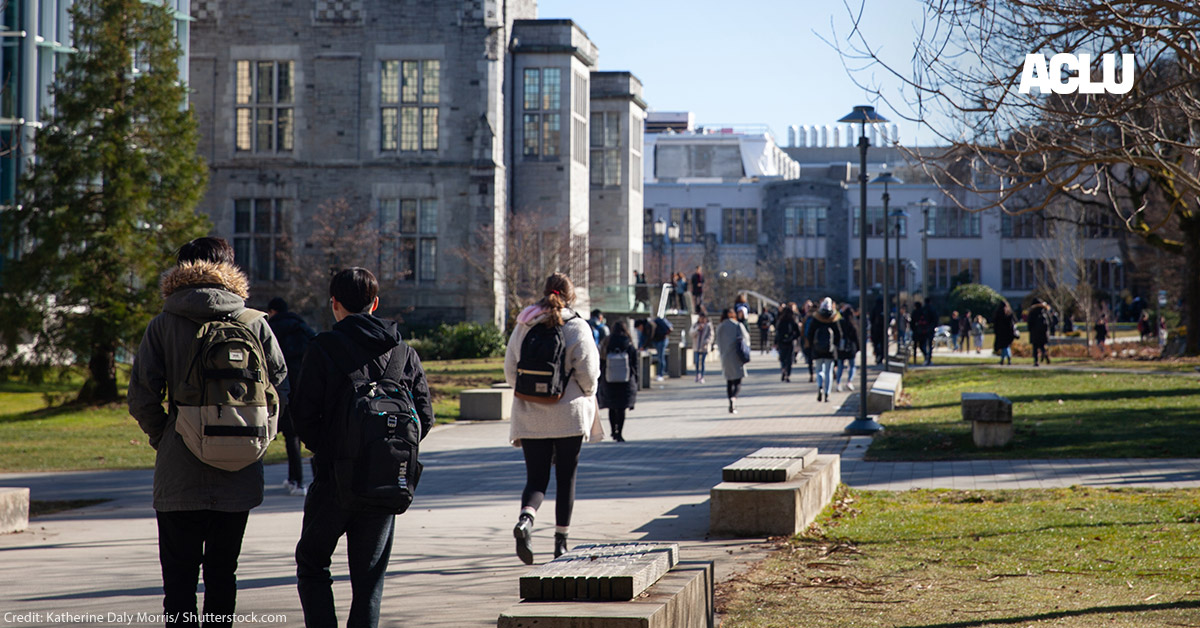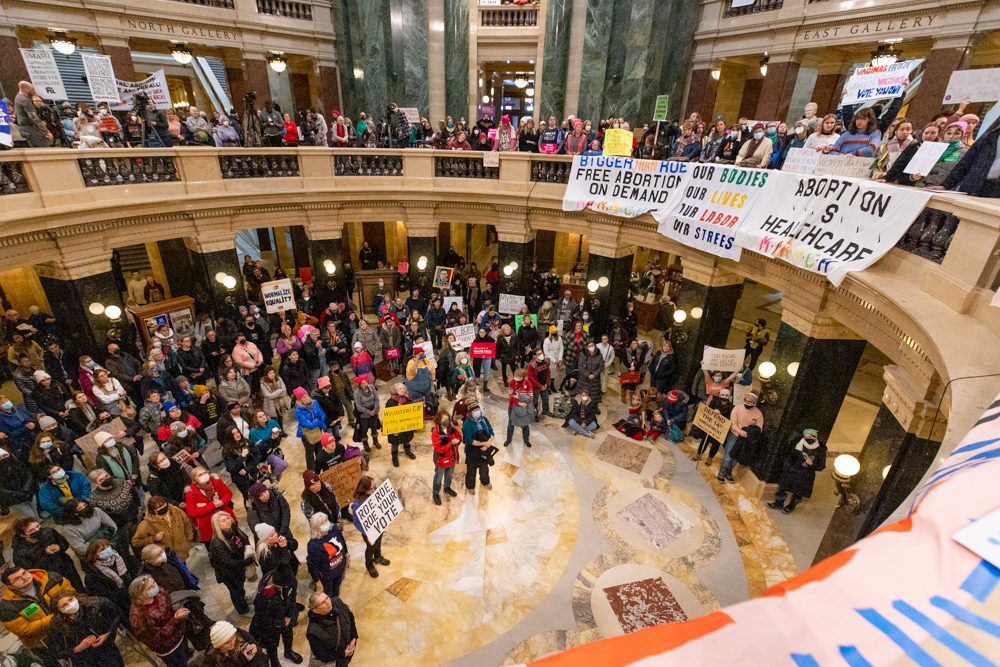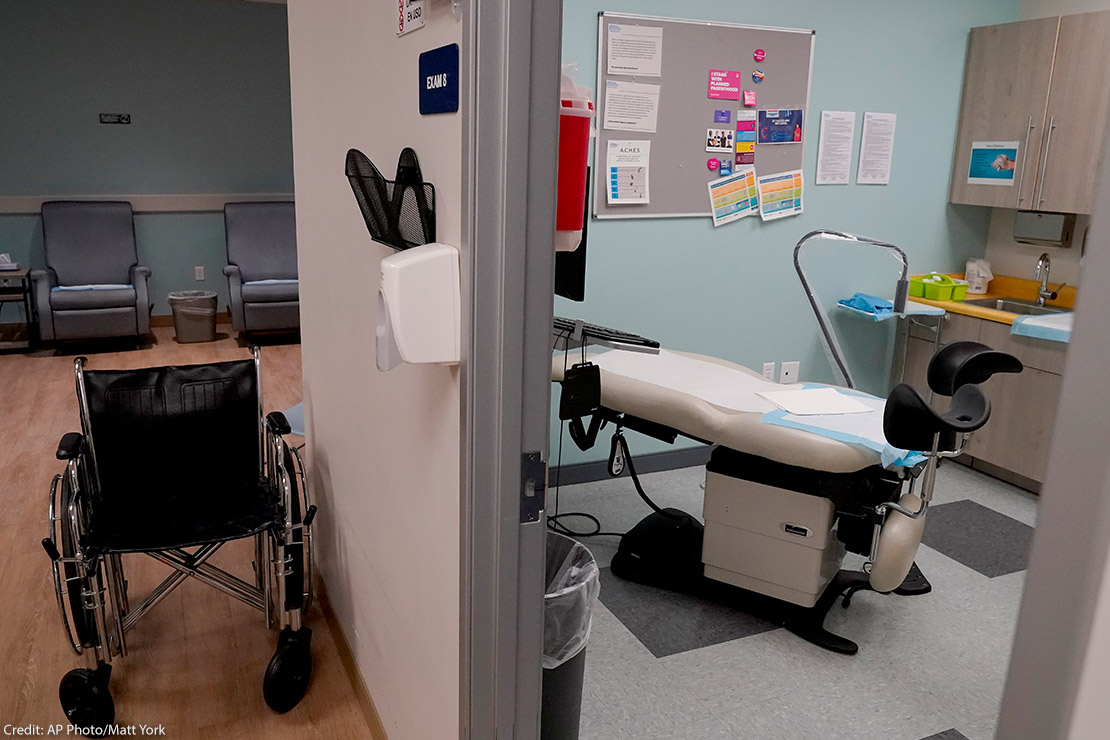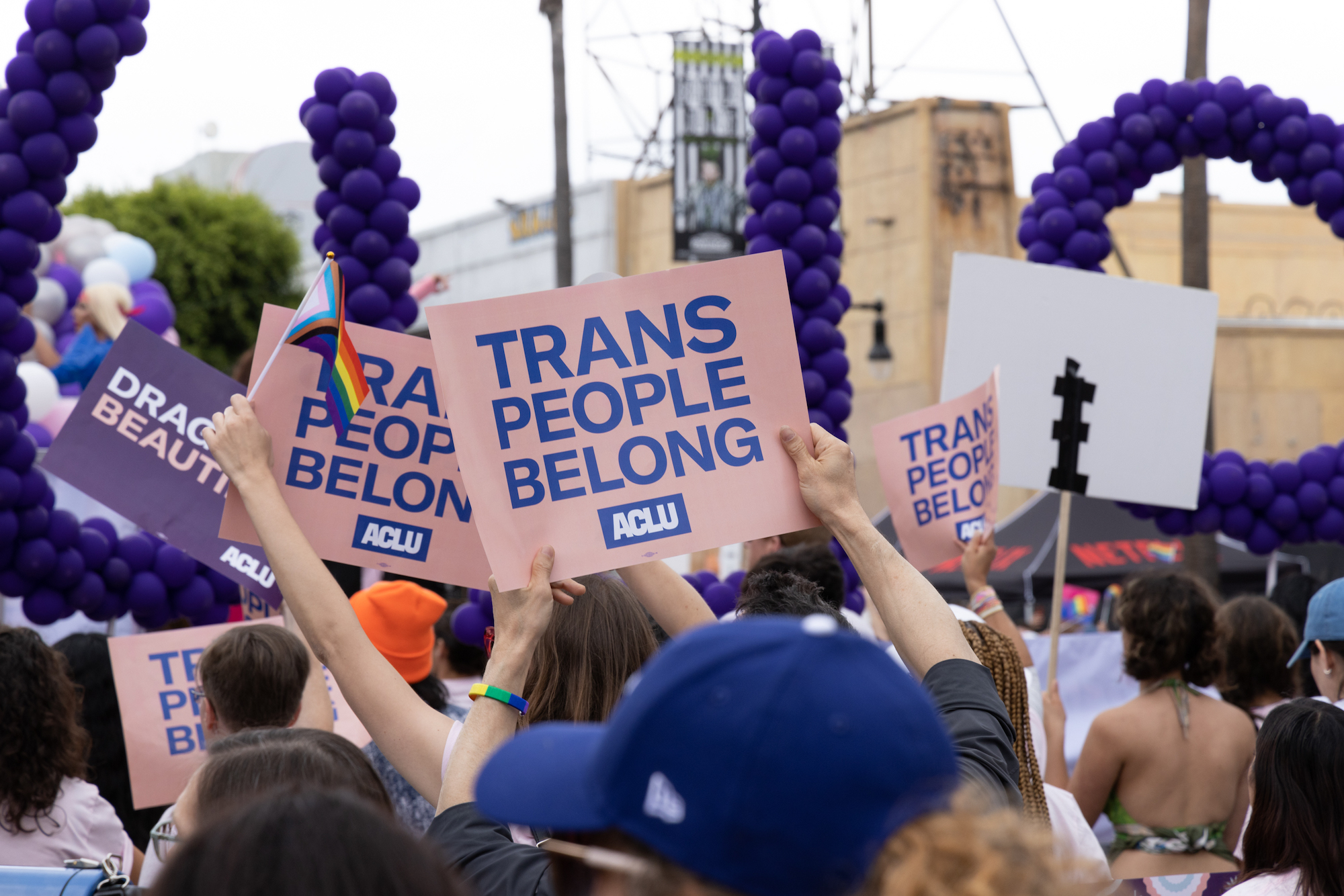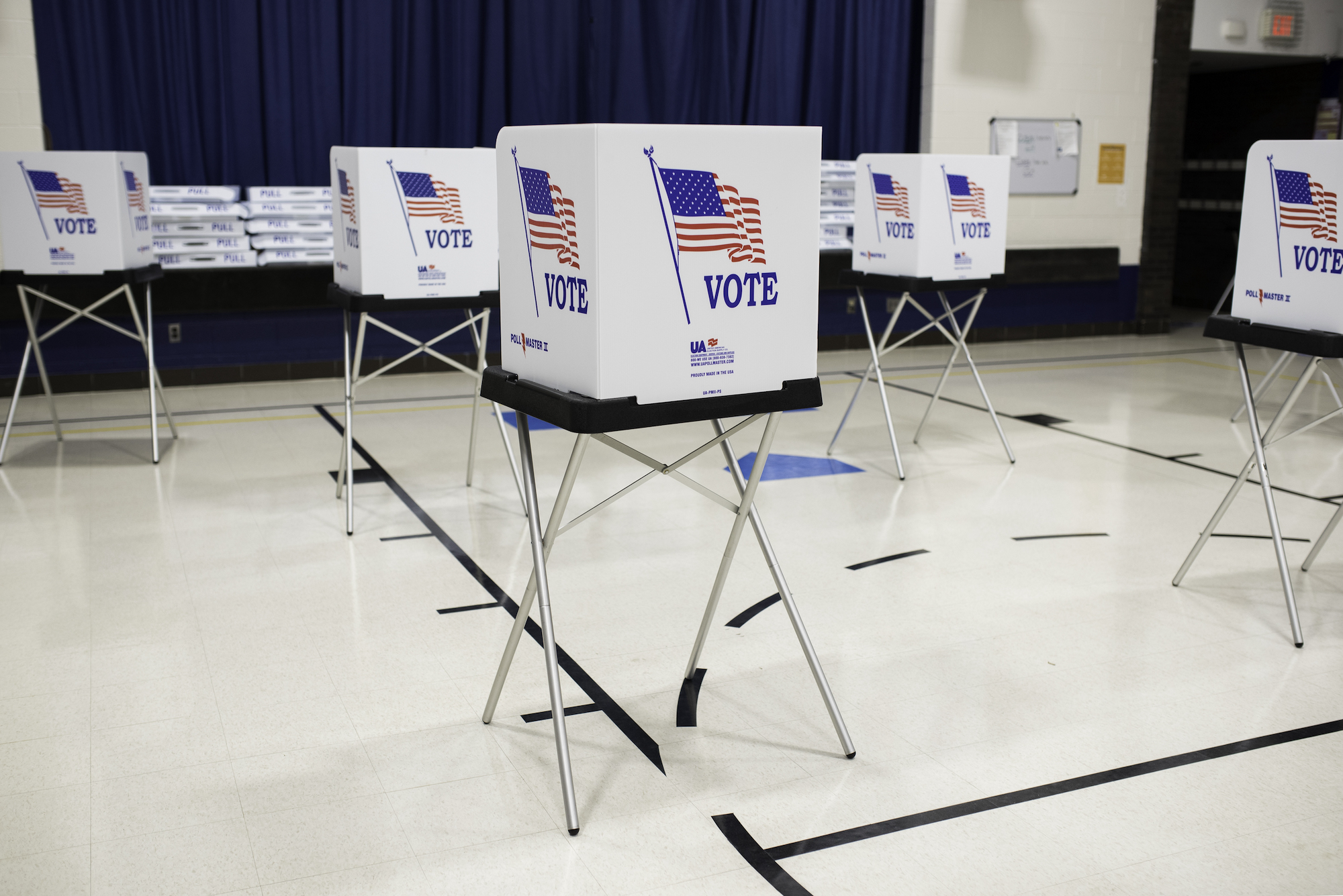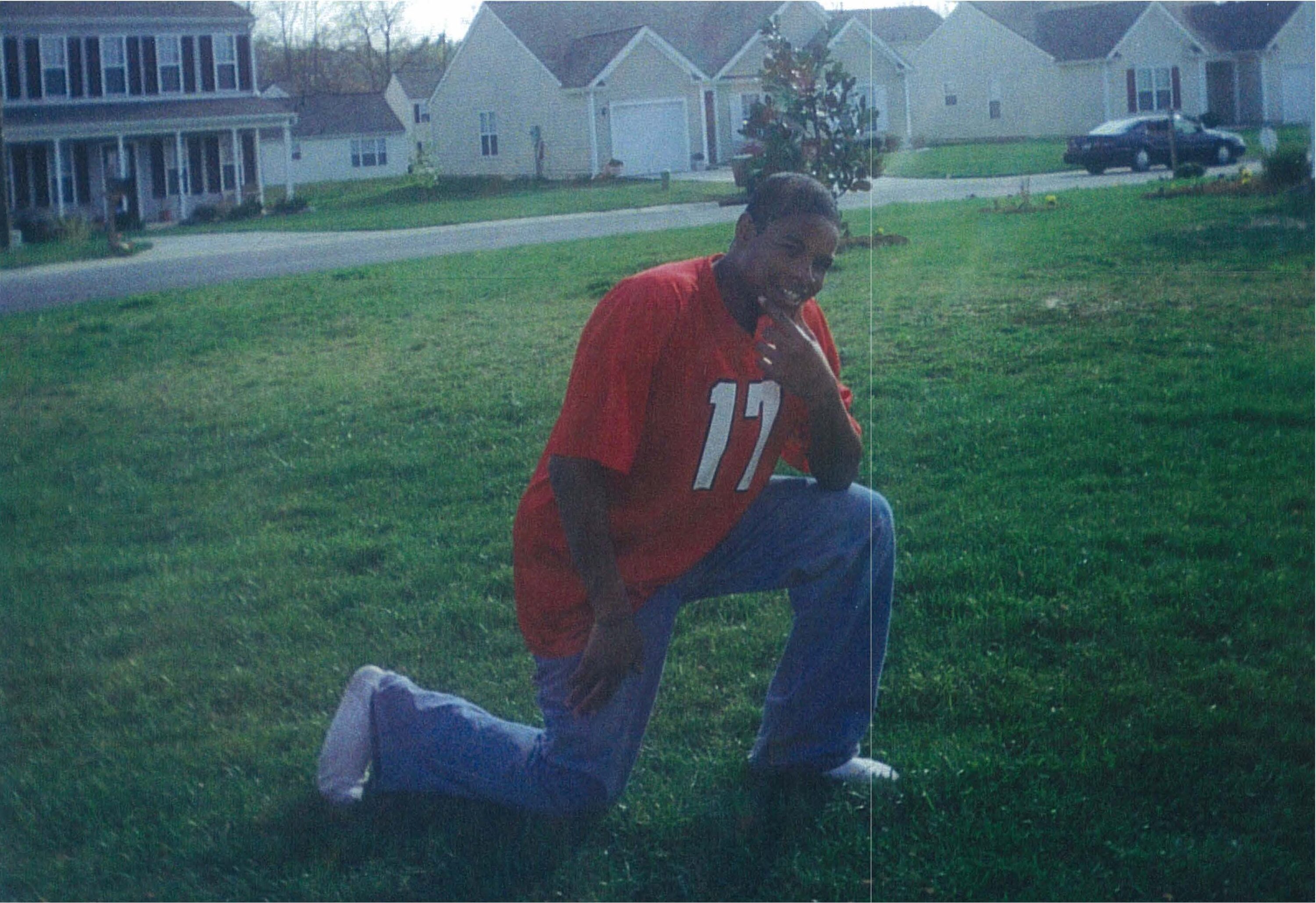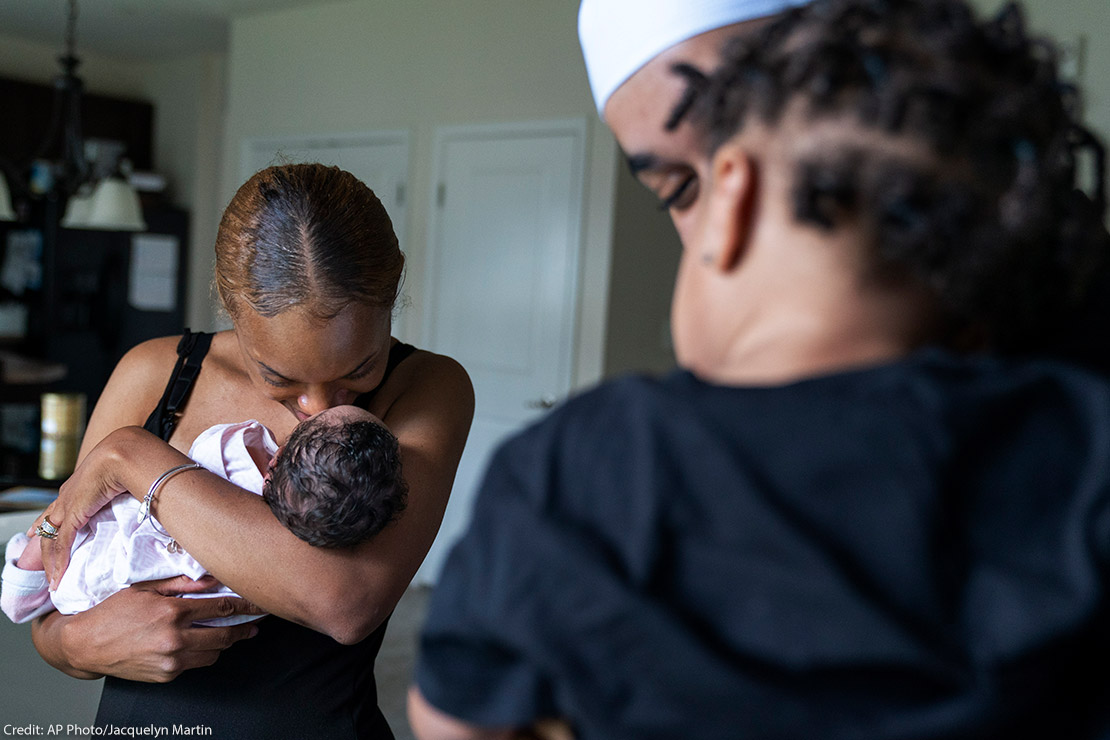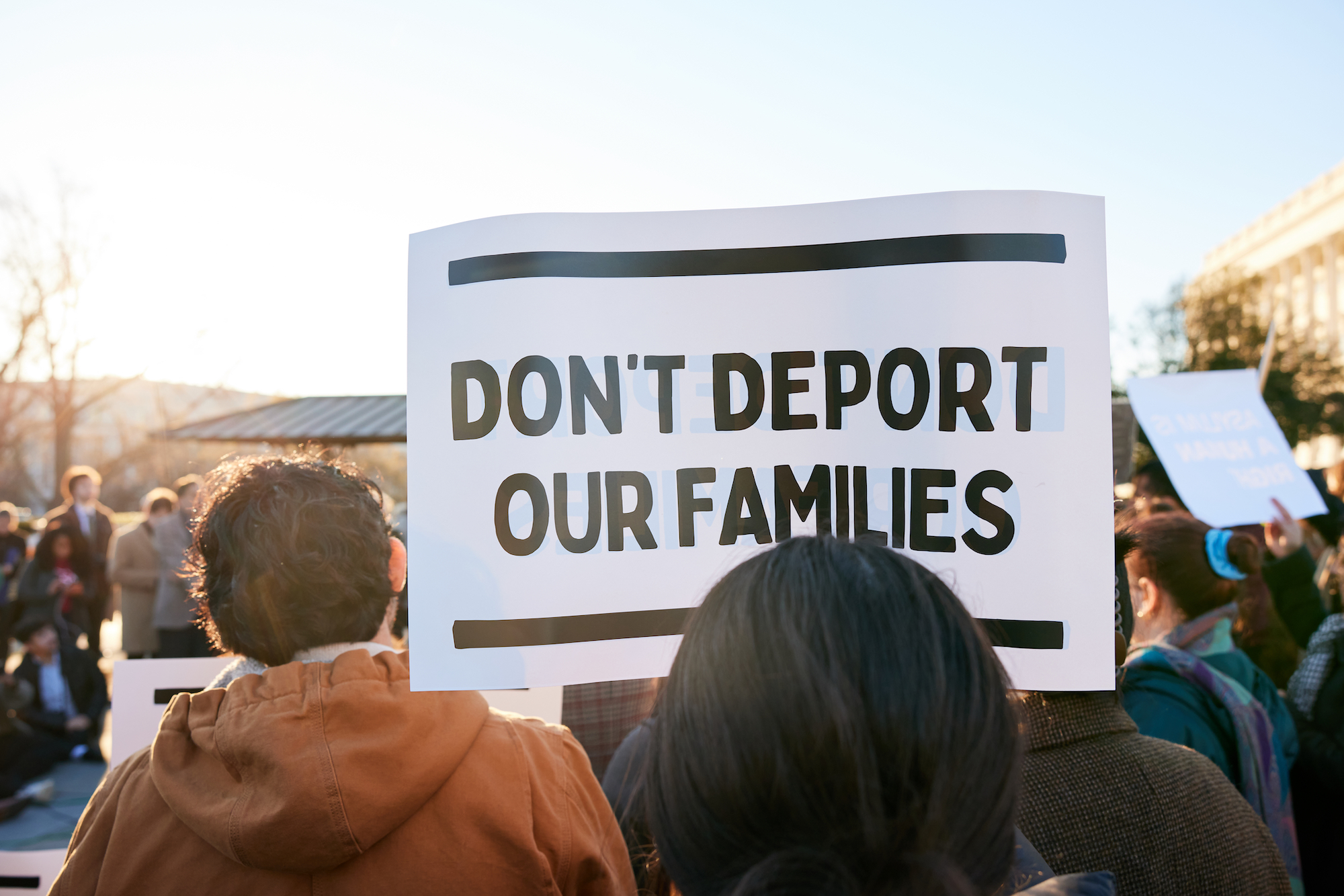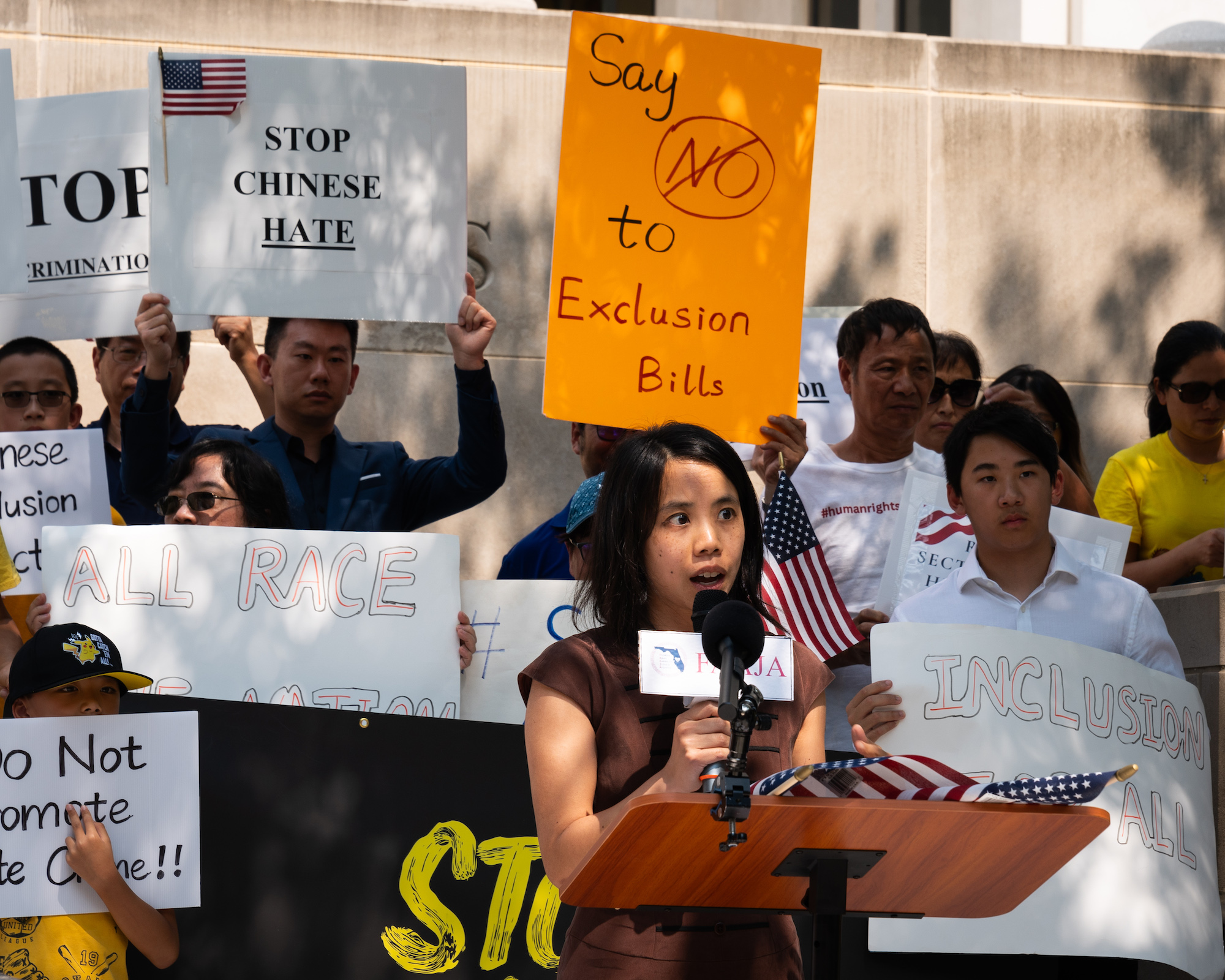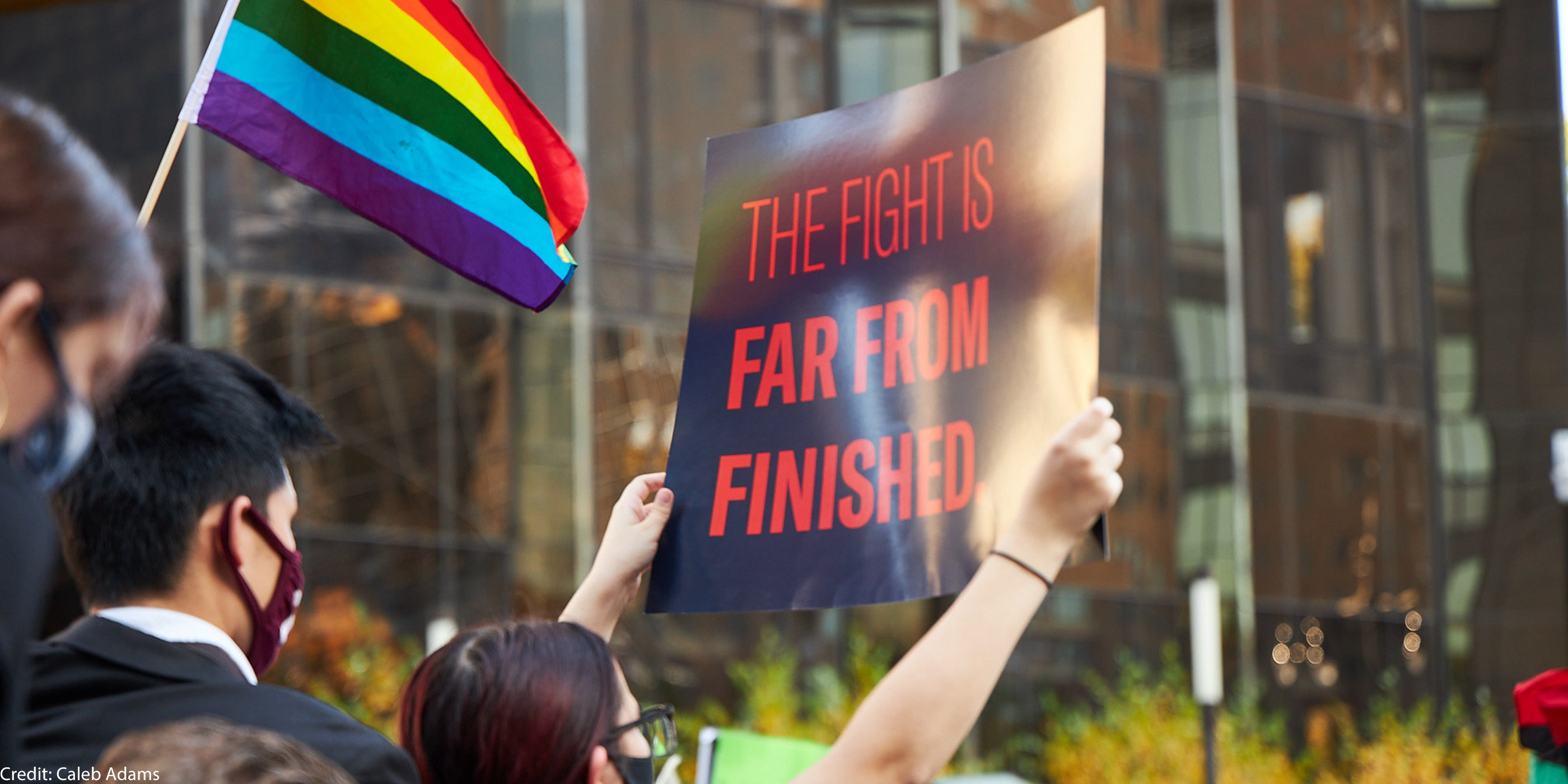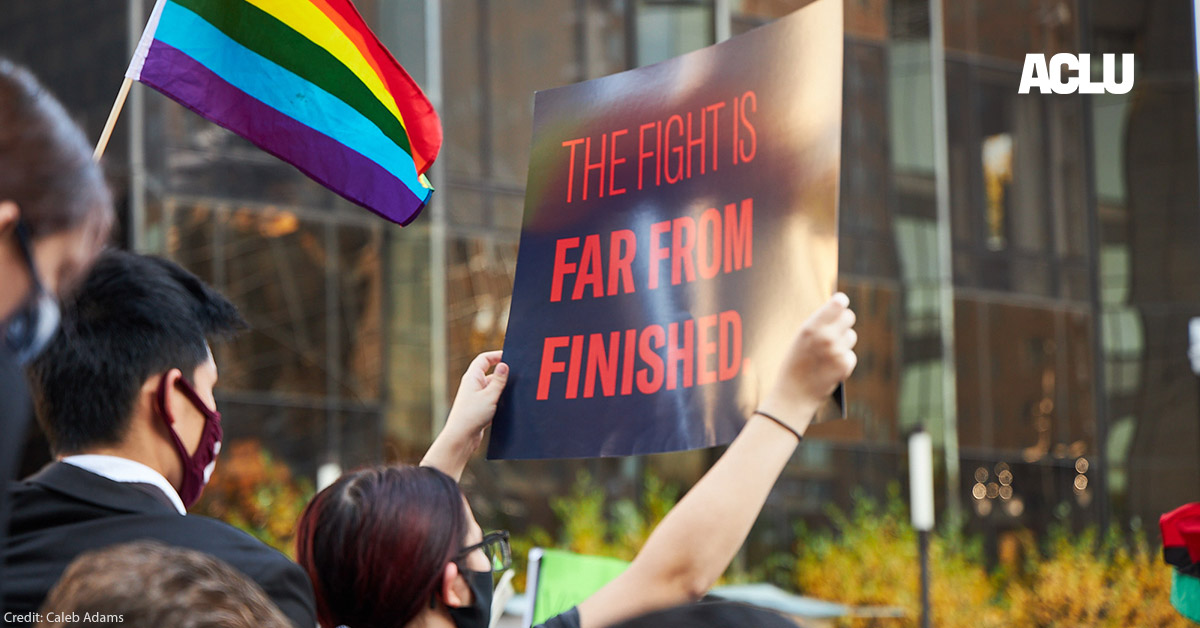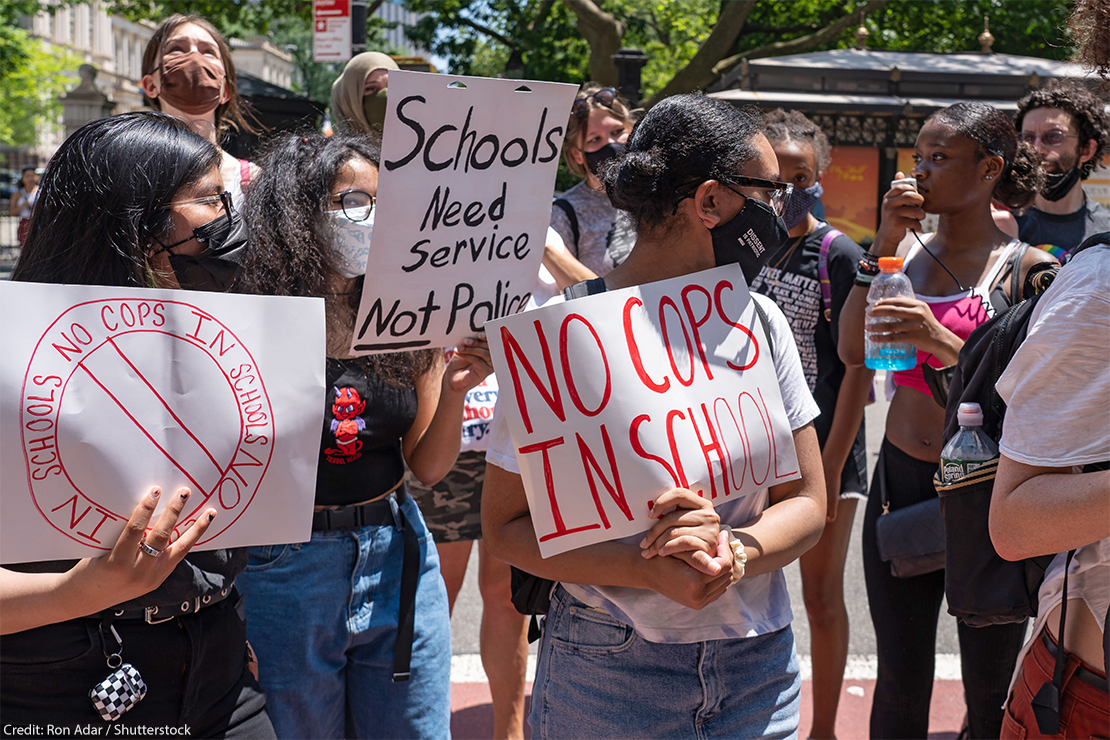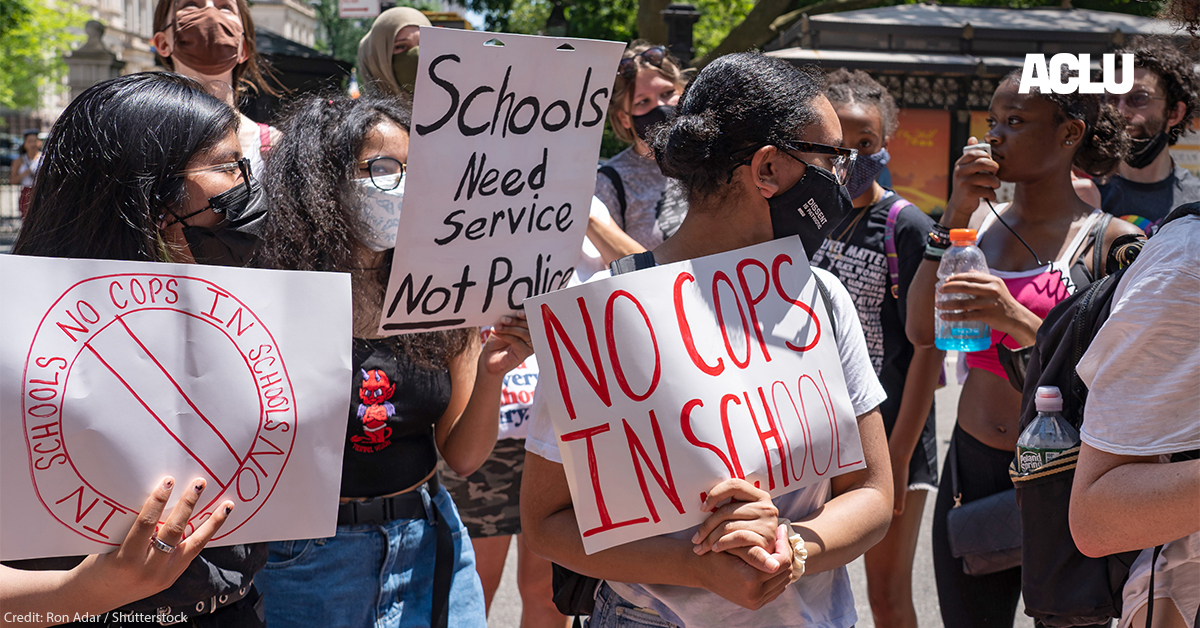The freedom to speak out and debate matters of public concern is a fundamental right that allows our democracy to flourish. As the world bears witness to the catastrophic war in Palestine and Israel, U.S. college students on both sides of this conflict have come out to protest and speak their minds. However, across the country, at public and private universities, students supporting Palestinian human rights are being silenced and censored. In Florida, for example, state university officials, in coordination with Gov. Ron DeSantis, ordered public universities to deactivate their Students for Justice in Palestine (SJP) chapters — a clear violation of the student group’s constitutional right to free speech and association.
In response to this unconstitutional crackdown on pro-Palestinian student groups, the ACLU, ACLU of Florida, and Palestine Legal filed a lawsuit on behalf of the University of Florida chapter of SJP. ACLU legal fellows Shaiba Rather and Tyler Takemoto, members of the UF SJP legal team, joined our podcast to discuss the lawsuit and why protecting free speech on campus is so important.
Kendall Ciesemier: Can you tell us what Students for Justice in Palestine or SJP is as a student organization?
Shaiba Rather: Students for Justice in Palestine is a student organization that is committed to advocacy, organizing, and educating other people on their campus, the greater community, on the struggle for Palestinian freedom. These are diverse groups of students who take time out of their schedules to take on additional labor of putting on events, flyering, staging peaceful protests, etc.
KC: What was your reaction to the order to deactivate SJP chapters on campuses? What does it mean in terms of students, civil rights, and civil liberties?
Tyler Takemoto: The Supreme Court soundly holds that the First Amendment protects these types of student groups from a university’s efforts to deactivate them. When we saw this deactivation memo from Chancellor Ray Rodrigues, we knew it violated these students’ First Amendment rights.
SR: This memo calling for deactivation targets SJP chapters across University of Florida’s school districts without accusing University of Florida SJP itself of wrongdoing. Instead the memo cites two statements from an entirely independent and separate group’s toolkit — the National SJP. The attempt to punish University of Florida SJP for another group’s speech violates the First Amendment, and goes against basic principles in our legal system: guilt by association and independent advocacy that is not made at the direction of or in coordination with a terrorist organization is not material support for terrorism.
KC: What do you think is the real goal of deactivating these chapters?
SR: Silencing dissent, especially for causes like Palestinian freedom, isn’t new. The efforts by Gov. DeSantis and Chancellor Rodrigues echoes a concerning national trend that is very aggressive. The focus on material support accusations are crucial. Using this term implies that a student group is offering support to a recognized terrorist organization. It’s a loaded term that historically has been used against marginalized groups, from post 9/11 targeting of Muslim communities to weaponizing it against activists in an attempt to stifle dissent. Governments know that there is this trump card and will use it. And in this case, they’re using it to totally cut out the legs of pro-Palestinian movements.
KC: Can you tell us about what the lawsuit the ACLU and partners filed seeks to do, and what is the main argument from SJP?
TT: Our lawsuit seeks to challenge this unconstitutional memo to deactivate SJP chapters and prevent it from going into effect. Alongside our lawsuit, we filed a preliminary injunction aiming to block the state of Florida from enforcing the memo, a move to protect University of Florida SJP from the already chilling effects on free speech this memo has caused.
SR: This case can feel unique because of how urgent and sensitive it might be — however, this is well in line with decades-old Supreme Court precedent. Our complaint says that you can’t discriminate based off a viewpoint, you can’t interfere with a student group’s right to associate or speak on college campuses, and there is no exception for pro-Palestinian speech — full stop.
KC: The ongoing crisis in Palestine and Israel has sparked concerns about campus safety as students take action and voice their opinion. However, pro-Palestinian efforts have gained particular criticism from schools and local governments. What role does protecting students’ right to free speech play in ensuring campus safety?
SR: In moments of dissent and heated political tension, universities might be tempted to silence protests as a shortcut to creating a peaceful environment. The thinking might be, “If I cut out the protests, disorder is not going to affect my campus.” But silencing student voices isn’t a real solution. Universities must be steadfast in keeping all students’ free speech rights protected while guaranteeing everyone feels safe to learn and live on campus — and recognizing freedom of speech is not a threat to that goal.
TT: We’re seeing a concerning trend, predominantly one-sided, to punish students for speaking in this moment. Job offers have been rescinded for speaking in favor of the Palestinian cause, a disturbing effort to paint pro-Palestinian speech with a broad brush as dangerous, harmful, or even pro-terrorist. In these moments, I believe it’s crucial to make sure that our First Amendment rights are being enforced across the board to enable a nuanced and truthful conversation in this really painful and difficult time.
KC: There have been calls for university presidents to investigate their campus SJP chapters. Could you walk us through how this prompted our call to action?
SR: Once again, we are in heightened political tension, political moments, and ultimately there is no viewpoint exception to the First Amendment, and that also means there is no Palestine exception to the First Amendment. The ACLU stands firm in defending free expression, regardless of the perspective.
TT: College campuses have historically been at the forefront of free expression and diverse viewpoints around complex ideas. Anecdotally, as a recent law grad, I’ve witnessed calls to investigate my peers simply for aligning with student groups or signing sympathy letters expressing sympathy with the Palestinian cause. This has definitely created a McCarthyite atmosphere on these campuses where expressing opinions can lead to public shaming and accusations of extremism.
KC: As young people, why is it so important as young people to be helping other young people express their points of view?
TT: The First Amendment protects your right to organize and demonstrate on behalf of causes that you believe in. Regardless of whether you’re in K through 12, you don’t have fewer rights just because you’re a student — and the ACLU is here to ensure you know your free speech rights and have the freedom to make your voice heard.
Date
Friday, December 29, 2023 - 3:30pmFeatured image
